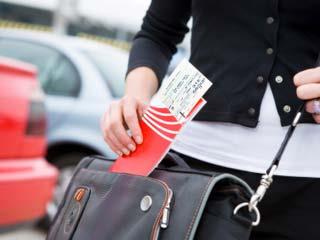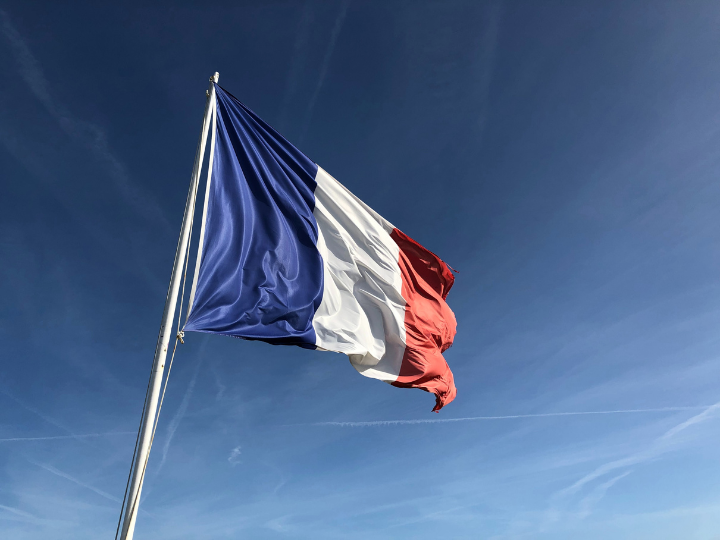The author, Mrs. Kristina Keller, is member of the management of a family tourist business chain in the Bonn / Cologne area in Germany. She is convinced, that the present financial and economic crisis and changes in consumer preferences and tourist travel behaviour as well as new competitors in the tourist market are demanding for new strategies. Kristina Keller spoke about this issue to the participants of the 2nd European Tourism Conference "Turning crisis into growth" in Thessaloniki end of October 2009. Here exerpts and conclusions of her speech.
Currently we can observe a change in consumer preferences and tourist travel behaviour. In our business we especially miss the early bookers, who plan a long time in advance, and the families.
The European Commission undertook two Euro Barometer surveys this year: one in February and one in early September. Both of these surveys showed us that, despite the economic and financial difficulties, most Europeans continue to travel. Indeed, there are indications that 63% of EU citizens have travelled or are still planning to travel for private purposes in 2009, compared with 67% in 2008. As a matter of fact, the survey states a change in travel behaviour. About half of EU citizens spent their main vacation in their own country and they decreased their budget for their holidays in 2009 compared to a year ago. They did this mainly, by reducing their lengths of stay and also by relying more on last-minute offers.
The travel market in Germany
To give you a short overview of the travel agency market in Germany, we can say that there are five different travel agency types and these have seen certain developments in size and turnover within the last few years. By the end of 2008, the German market counted over 11,000 travel agencies, divided into tour-operator-owned agencies, franchise agencies, cooperation agencies, independent agencies, and pure online agencies.
It’s interesting to see the development of the travel agency market over the last two years, compared to the development seen in the 90’s. Whereas the market showed growth in the form of 500 newly established travel agencies in the period from 1994 to 1995, there was a decrease of almost the same proportion in the period from 2007 to 2008. Now let us take a look at a fairly typical family-owned business like ours!
30 years ago, my mother started her business with one travel agency in the city of Bonn. Due to its advantageous position at the centre of the former capital of Germany, she very soon expanded her business and opened other travel agencies in and around Bonn. Her goal was always to expand the market and to reach all different types of customers so as to adopt and maintain a homogenous communication strategy. Now it is almost 15 years ago, that we decided to join the franchise system of TUI ReiseCenter. This system offers us various benefits - for example territory protection, recognition value, sales support / marketing solutions, quality management, the best tour operator conditions, personal support from the group’s headquarters, training courses for employees and senior managers and last but not least state-of-the-art IT solutions. Until now we have not regretted our long-term choice of system.
The key success factors
As you are doubtless aware, each business has its own key success factors. Within the services industry, and especially within the travel agency sector, there are five important challenges – besides the products we are selling – which help us succeed in times of crisis, set ourselves apart from our competitors, and survive the competition from the internet! These challenges are <location, employees, sales control, marketing and quality (quality of products, quality of services, quality of advisory service)>.
Location
Our vision has always been to provide the areas we cover, with a high quality of services and knowledge and so extend our reputation. Therefore, we made measurements of the locations and came to the conclusion not only to open up our agencies in bigger cities, but also in rural areas and at the main airport in our region. Our successful expansion has helped us to offer a large variety of tourism-related services such as selling regular leisure vacations, providing support to business companies which have to plan their business trips, and serving customers, who do not plan their vacation in advance but make a “last minute” decision, for example at our airport office. We have learned, that this presence, is very helpful in getting prospective customers to recognize our chain.
Employees
Our motto is “The customer rules supreme!”, therefore we try our best to train our employees as well as possible. The success of any business depends on its employees and selling such a sensitive product as tourist and business travel, combined with the required service quality, needs to be trained. In doing my research, I learnt that our 30 employees have a total of over 440 years of professional experience between them, which shows our strength within the market.
Sales control
Sales control is one of the most important tools for achieving success in our business. Over the last few years, the travel agent industry has suffered from decreasing commission payments. It all began when airlines stopped paying commissions to tour operators who decided to pay commissions depending on the individual turnover of agencies. Generally speaking about the current development of a travel agency’s profit situation like ours I would like to say this: Turnover remains stable, the revenues decrease, and the costs expand, meaning profit is actually shrinking! Years ago one was able to make a small fortune running a travel agency, nowadays one needs the right mix and quality of skills to stay profitable. These circumstances make it very important to gain control of the sale processes.
Marketing
Therefore marketing is one of the most important tools we have today. Whereas newspaper ads, marketing letters, and marketing mails are regular standards, we try to use our extended customer database as a helpful marketing instrument. Marketing is indeed very important but you always have to be careful to find a good balance between “solicited” marketing measures and “unsolicited” marketing measures. You do yourself no good, if your customers are unhappy about getting too many offers from your company.
Quality
Without high quality standards, an enterprise cannot stay successful. Quality is the key word in our family business, and we do our utmost to maintain our high quality level and adopt modern quality management measures. One key quality factor is the selection of products to sell. Our range of products is chosen on the basis of the reputation of the respective tour operator, its product line, its service, and its relations with us as an agent.
Our actions are always in keeping with our client’s wishes and demands! We do not try to talk our clients into anything because we want happy customers, not frustrated ones, irritated by advice which is too insistant.
Winning a new customer is not that difficult; keeping the customer is a more challenging matter and means customer satisfaction.
To convince the customers
The success or failure of an enterprise is more and more determined by its ability to convince the prospective customers of the quality and value of its products and to motivate the employees to identify themselves strongly with the company. A lack of professionalism in external communications can cause considerable problems in the market – for example, loss of corporate image – and problems in the company’s internal communications may lead to employees not identifying themselves with the company. Here we are talking about two key market success factors: namely customer loyalty and employee retention – which in turn, can only come from customer satisfaction and employee job satisfaction.
The three major communication strategies
We are strongly focused on three major communication strategies, which are key to our business:
1. Public Relations
2. Standout policy
3. Image Profiling
To sum up:
Germans will continue to travel and they are expecting a high-quality tourism experience. For most of them, the value they obtain for their money and the cultural attractiveness of the place they go is more important than the price itself. Future predictions by economists show, that the freefall into which the financial crisis has sent our economies, is coming to an end. We should now expect a stabilisation in travel bookings and perhaps again a prolongation of the stays in next year’s tourist season.
We have to be aware of facing new challenges, such as competing against the internet, maintaining customer loyalty, and satisfying customers’ demands, combined with the smart use of our unique assets. If we are asking ourselves, whether tourism in times of an economic downturn is threatened or whether it presents us with an opportunity, I can personally say that it is an opportunity for all of our future actions.




 By: N. Peter Kramer
By: N. Peter Kramer
